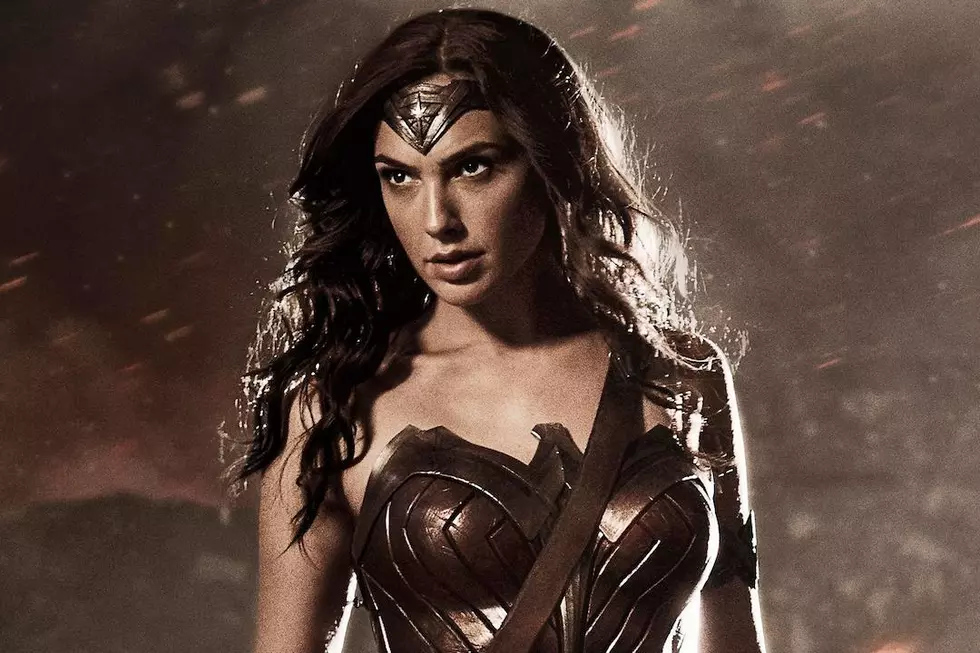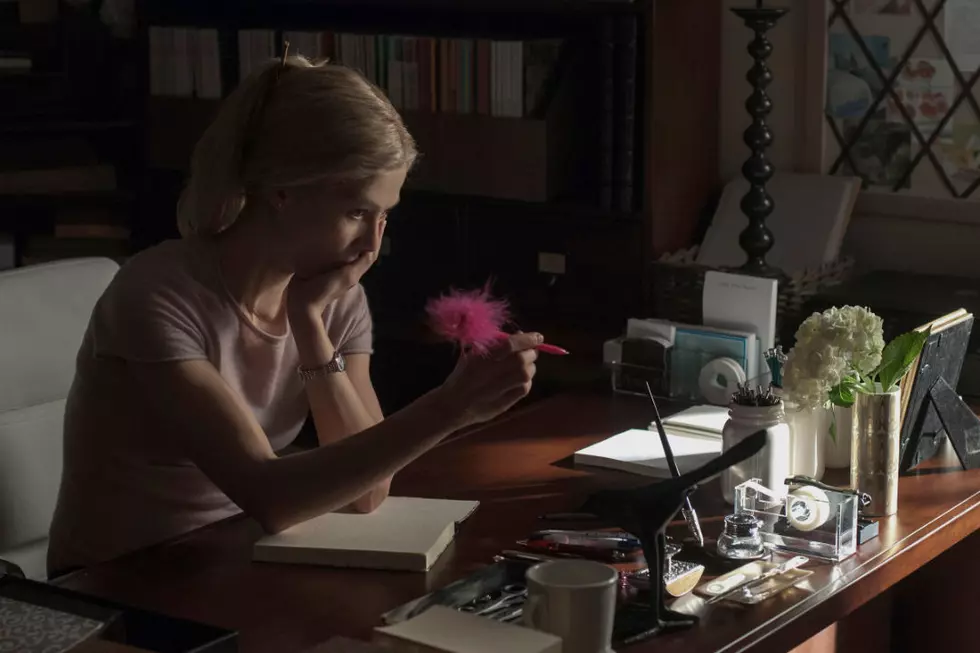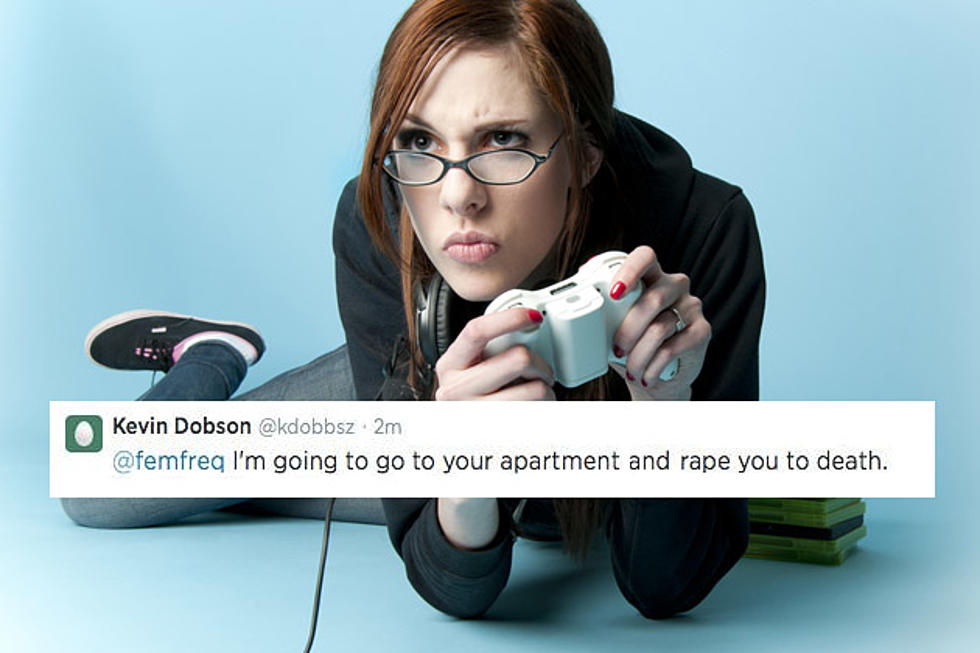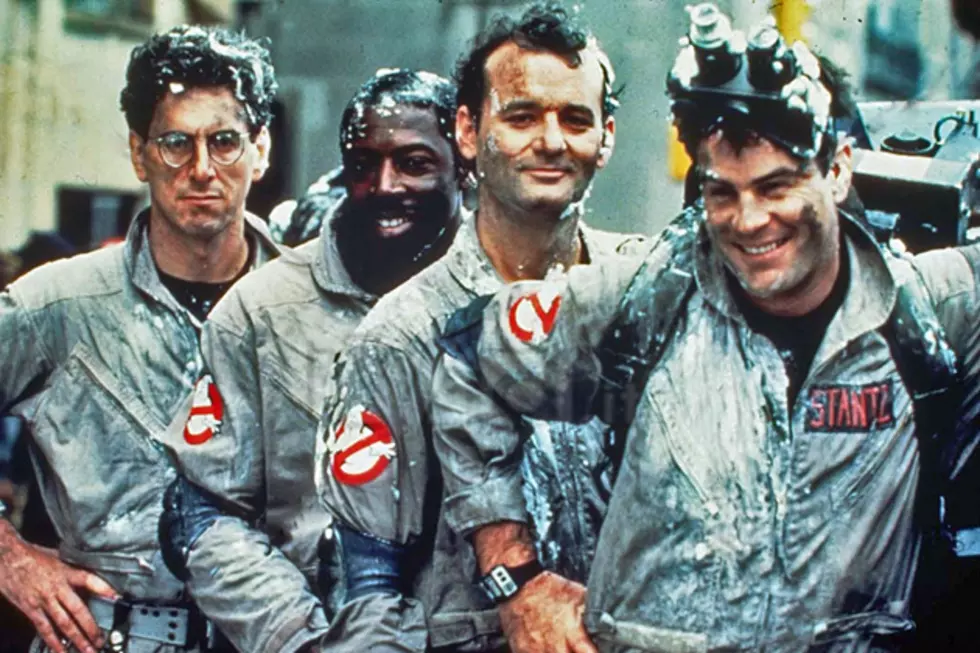
Reel Women: Knee-Jerk Feminism
When we watch movies that feature violence and heinous acts against women, our immediate response is typically repulsion, but why are we okay with violence against men?
Our repulsion when we witness women being brutalized and defiled on screen is borne from a positive place -- we don't want to see them get hurt and we feel the need to protect them. But this knee-jerk feminist response is little more than sexism in moral disguise because when it comes to violence against men, we can hardly be bothered to bat an eye.
Feminism is about ultimate equality, about the sexes being treated as equals in all walks of life (the work place, politics, schools, et al.) -- why can't we apply that same thinking to watching films? When a woman is abused for the sake of the narrative, this is neither an endorsement of said behavior, nor is it a celebration. With films like 'I Spit On Your Grave,' 'The Last House On the Left,' and 'Irreversible,' the violence perpetrated against these women serves a greater narrative purpose. It's not violence for the sake of violence -- it's there to call into question our moral compass via the actions of the characters on screen, to invade our comfort zone and make us ask ourselves what is and isn't okay, and it also confronts decades of collective thought in regard to gender conventions. Revenge films -- when done well -- have a distinct capacity for confronting the audience with moralistic notions, asking what you would do in the same situation, and if two wrongs -- or an eye for an eye, as it were -- make a right.
We need to be discomforted while watching films sometimes. We need films that will open up and encourage healthy dialogue about the atrocities within. We need films that will act as a prism through which we view the worst parts of humanity, and sometimes we need films to be a mirror so we can study ourselves.
A film festival is where we often see more violent films than elsewhere -- these are the films that have a more difficult time landing distribution due to their content, and it's here where we see the knee-jerk feminism complex at its most concentrated. Critics and cinephiles leave a film, having watched a woman fall victim to the brutal desires of men, and there are, inevitably, complaints. Why did we have to see it in such detail? Why does the woman have to get hurt?
To answer the first question: For a filmmaker to include a heinous act perpetrated against a woman, and for that filmmaker to pull on their kid gloves in editing to make sure the audience is protected from witnessing the atrocity therein is a disservice to both the character enduring the pain and humiliation, and the audience. It's not always necessary to show everything, but treating these more violent scenes dismissively can inspire similar feelings of dismissal in the audience. Oh, the violence wasn't that big of a deal because they cut away so quickly, so whatever happened to that woman couldn't have been that bad.
In the instance of revenge films -- a fine example for this discussion -- the audience needs to feel that the act was truly heinous enough to merit the possibility of equal, or worse, retribution. It's not enough to say a woman was hurt, we need to understand it. Many of us will be fortunate enough in our lives to never experience brutality at the hands of another human being, and thus we simply cannot empathize, through no fault of our own. And again, it's not necessary to show every violent moment in explicit detail, but the pained look on a woman's face (a la the 'Last House On the Left' remake) is enough to craft sympathy with the audience. The most important thing a director can do is keep the audience with the victim.
As for the second question, why does a woman have to get hurt? This brings us to the real focus of this week's column. If it's integral to the narrative, to the vision of the writer and the director, and it serves a greater purpose within the framework of the story, then yes -- someone is getting hurt. Just like if baking a cake or kidnapping a child or having a baby might be integral to the plot.
When that someone is a man, we seem to feel more comfortable. A man can take the pain. We need to ask ourselves why we think this. Is it because we feel that a man is more tolerant, athletic, naturally stronger, and more rational, therefore better suited to deal with the psychological and emotional fallout from violence inflicted against him? Why do we think it's not okay for a woman to be brutalized, but it's okay for a man to get hurt? More importantly, we celebrate men inflicting violence on one another in films all the time, and we don't think there's anything wrong with that because they're men.
This knee-jerk, faux-feminist response to women enduring violence on screen is ridiculous, and it's often a response heard from the lips of women themselves. It's presented under the guise of moral superiority -- this thinking that the film or the filmmakers are repulsive for hurting women. Never mind the fact that -- like any film featuring a male getting hurt -- none of this is real. A woman was not actually hurt, the filmmaker is not endorsing or celebrating violence -- they just had a story to tell. Why should we accept women getting hurt on film any less than we accept the same with men?
Those that argue that women often endure much worse brutality than a man ever could are also presenting a similarly sexist argument. We can brutalize men the same way we brutalize women. Particular acts and gender are not mutually exclusive, though women do often wind up on the receiving end of fates we consider much worse than death. And that's an issue to take up with filmmakers, who -- for whatever reason -- refuse to put men in similarly life-shattering situations.
The idea, though, that we cheer men on as they kick each other's asses and kill their enemies while we shame a similar film that deigns to hurt a woman is hypocritical. It's all or nothing; if this violence is okay, then that violence has to be okay, too, or else we're saying that women are not equal.
It's sexism playing dress-up in overgrown feminist clothing, and it has to end because it just looks ridiculous.
More From ScreenCrush









